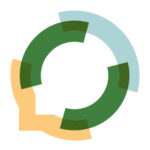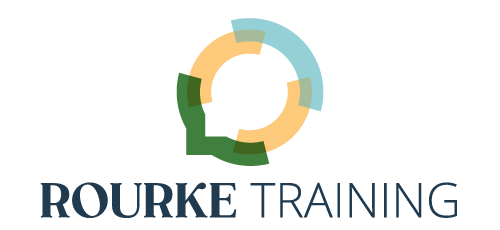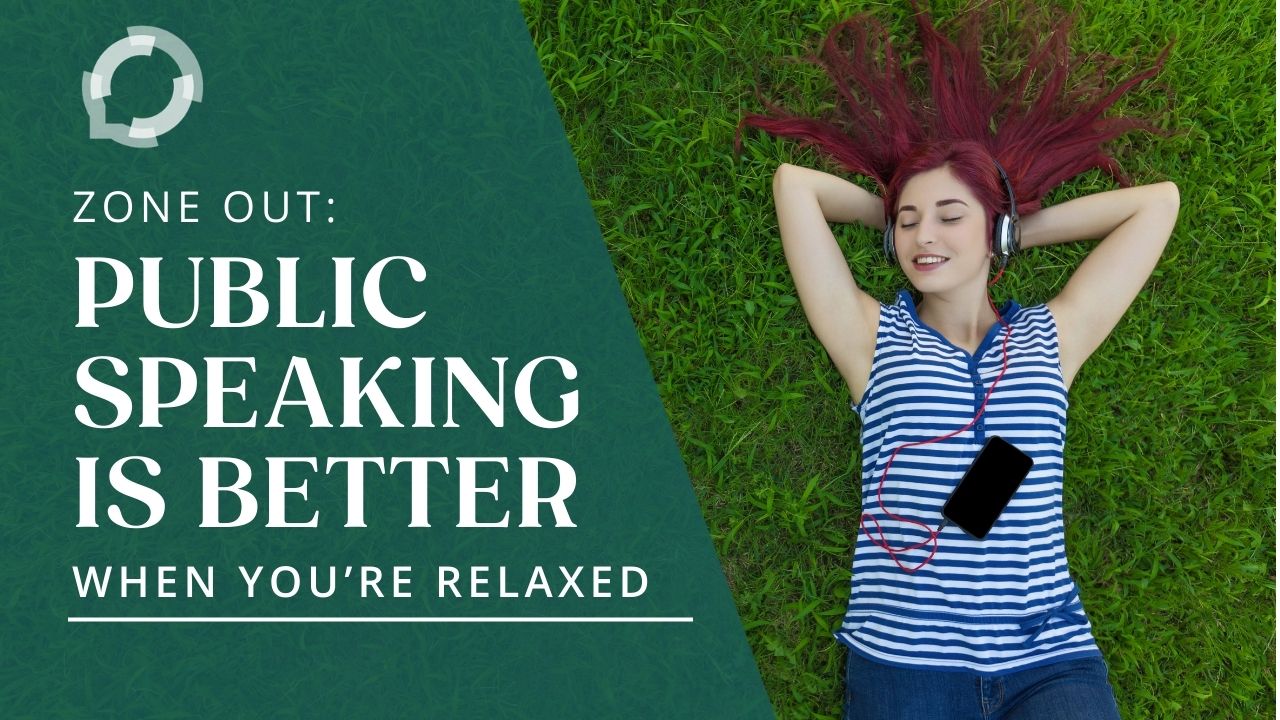Ironically, one of the best ways to prepare for a speech or presentation is to zone out shortly before you’re scheduled to begin. Listen to music, play a video game, meditate, stare out the window – any activity that is familiar and doesn’t involve actively thinking about your topic will do.
Gently distracting your brain before stepping into the spotlight helps even experienced speakers start with confidence and avoid the dreaded flubbed opening.
Why We Flub: Trying too Hard to Get in the Zone
Suddenly being unable to do something we’re experts at is such a well-known psychological phenomenon that it has its own media trope – the Centipede’s Dilemma, named for a poem about a centipede with no problem walking until asked to explain how he managed the task.
Shankar Vedantam talked with Sian Beilock, a leading cognitive scientist, about why experts choke despite their expertise. In an episode of Vedantam’s podcast Hidden Brain, “You 2.0: Overcoming Stage Fright,” Beilock points out that cramming just before taking the spotlight turns fear of public speaking into the reality of flubbing.
Beilock has studied the psychology of choking, which she explores in her book Choke: What the Secrets of the Brain Reveal about Getting It Right When You Have To (2010). As Vedantam notes, “We often think that people who fail at important tasks are people who don’t care or people who are simply unprepared for the big moment,” but choking is actually “the consequence of expertise and caring too much.”
Vedantam makes an important point. While no one enjoys the experience of blowing a significant moment in the spotlight, how you frame the meaning of that moment also matters.
The more you attribute flubbing, whether your own or someone else’s, to negative causes such as carelessness or unpreparedness, the harder recovery from that mistake will be. If you’re the speaker, criticizing yourself for this lapse only doubles down on the circumstances that produced it. If you’re listening to a speaker who flubbed, you might be more dismissive of what they do say after their mistake.
Instead, reframe the flub as a sign that the speaker cares deeply about both their topic and their audience. Extend grace and a second chance to make a strong first impression.
The Role of Memory
Beilock calls working memory “our cognitive horsepower,” which is how we’re able to keep a variety of information accessible for instant recall.
Your brain uses working memory while you’re mastering something new. Keeping the relevant details right in front of you while learning enables quick recall and correction.
This is why repeating something over and over without interruption for several minutes helps you remember it. You’re reinforcing working memory’s focus. If you were young enough to watch Sesame Street in the 70s, you know that’s how the little girl remembered to get “a loaf of bread, a container of milk, and a stick of butter” at the grocery store without writing it down.
Once you’ve mastered the skill, your brain transfers that data to your procedural memory, which is where it stores information on how to ride a bike, how to fold laundry, and anything else you do in the same way every time you perform the action.
That transfer to procedural memory is necessary because working memory has a limit. When working memory is full, the brain has to choose what to focus on. Unfortunately, cramming just before you go onstage or live in the webinar stashes that data in working memory, maxing it out before you’ve even started.
As Beilock says, “In these high stakes situations, we care so much about what we’re doing that we try and control it in order to ensure an optimal performance. And unfortunately, that control can backfire and actually disrupt our ability to play fluently, on autopilot, to do the thing we’ve practiced so hard to do.”
If trying to ensure an optimal performance by controlling everything increases the chances of backfiring, the solution isn’t even more control, an even more detailed review just before the big moment. The solution is less control.
From Flub to Fab: Zone Out
Public speaking is a skill and takes practice like any other. Practice, of course, happens over time, long before you step onstage or turn on Zoom.
Does this mean you shouldn’t do anything before your speech or presentation? No, it doesn’t. But, as with many areas, timing is everything.
Athletes warm up hours before their event, stretching and calling up procedural memory for their discipline. Speakers warm up, too, from vocal exercises to walking through the space to a tech check to avoid last minute surprises.
For athletes and speakers alike, the key is to stop warming up before you hit your boiling point and switch from procedural to working memory.
If you’re speed-reading your notes one last time, trying to hold on to last-minute information from your content, you won’t be able to remember the name of the organization you’re speaking to or assess the audience as you walk to the microphone. Your brain is focused on the wrong set of details.
Instead, you want to save working memory to process the dynamic aspects of public speaking – noticing how your audience is reacting, timing your pauses, making adjustments to your content based on what your audience needs.
That’s why using the time before speaking to zone out is so important. Activities that you can do without paying significant attention keep your working memory available for the details you’ll only be able to take in once you’re on stage or online. They’re to your brain what comfort food is to your stomach: easy, familiar, soothing. Anything that you find fun and relaxing can help you zone out.
Danger Zone
A crucial context for Beilock’s analysis is that this sort of performance anxiety concerns those who are definitely subject matter experts, or SMEs. While there’s always room to expand their knowledge, experts unquestionably know their material through and through.
In public speaking, you need to be an SME AND you need to practice. A lot, in circumstances that are as close as possible to those in which you’ll be giving your speech or presentation. A moment in the spotlight is not the time to wear a brand-new pair of shoes or to use your slide deck for the first time.
From your clothes to your tech to moving in the physical space or keeping your hands within camera range, the more you practice, the more you’ll transfer the specifics of this particular event from working to procedural memory. And the less likely you’ll be to flub.
Stay out of the danger zone, unless you’re Top Gun’s Maverick and Iceman flying jets to Kenny Loggins’ iconic song
What’s Your Choice to Zone Out?
How do you use the time before a speech or presentation? Do you have earbuds in, listening to your pre-speech playlist? Are you playing a video game? Reading a favorite book?
Tell us in the comments.
Check Out Our YouTube Channel
The Rourke Training – Ongoing Mastery YouTube channel has a bit of something for everyone. Go there to get Kirsten’s take on examples of public speaking, as well as reflections on her entrepreneurial journey. The channel is also the home of the podcast Kirsten and Kellie produced for 5 years, Ongoing Mastery: Presenting & Speaking, which covers everything connected to continually improving your craft of being a public speaker, from interviews and mini-coaching sessions with guests to conversations between Kirsten and Kellie.
Come join us. Cheers, Kellie


